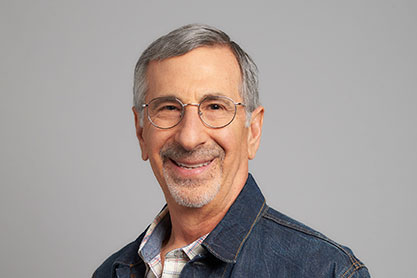David’s Story

The first time David Friedman visited Bayview-Hunters Point, he had been living in San Francisco for decades. As he stood in the public housing project, he gazed into the distance at the buildings of the city’s wealthy Financial District, where his own engineering firm is located.
“I have to say, I was moved, maybe even a little shaken,” said Friedman, who at the time was chair of the board of the San Francisco Foundation. “I’m a longtime San Francisco resident and these were parts of San Francisco that I was just not familiar with. I had no idea how dilapidated, how poor, how challenged these neighborhoods were.”
Friedman grew up on the Peninsula, in the wealthy enclave of Hillsborough, but he moved to Russian Hill in 1975 and considers himself “a San Franciscan, tried and true.” His family – the extended Koshland family – are famously integral to philanthropy in the Bay Area.
His grandfather, Daniel Koshland, Sr., was a founder of the San Francisco Foundation. His mother participated for years in the Koshland program, a leadership development group. Friedman is a trustee of a few family foundations.
Around 2003, he was invited to join the board of The San Francisco Foundation. When he became board chair several years later, he asked the Foundation’s then CEO, Dr. Sandra Hernandez, to suggest an initiative that he might commit himself to more fully.
When the Foundation decided to invest in HOPE SF, he said,
“Sandra turned to me and said, ‘I think this one is it.’”
“Myself and my family are beneficiaries of the affluence of the city,” he said. “She thought this would be something that would really resonate with me. And she was right.”
He found HOPE SF’s principles of economic mobility, community health and education for public housing residents deeply compelling. He was especially impressed by HOPE SF’s commitment, not just to “new, shiny, safe residences,” but to breaking the cycle of poverty.
He volunteered to chair the fundraising committee and committed himself to raising $25 million.
“I hoped a lot of San Francisco families that would likely be as captivated as I was by the disparity between the wealthy San Francisco and the poor San Francisco and the multiple generations of poverty that these communities had,” he said. “I hoped people would open their checkbooks easily.”
Friedman and his wife, Paulette Meyer, also donated money to the project – “It’s easier to fundraise when you can say ‘my checkbook is behind this as well,’” he said.
Other foundations were soon drawn to the cause, he said. Many national foundations were struck by the uniqueness of HOPE SF’s place-based approach and were quick to support it.
But some residents, Friedman realized, were still skeptical. About a year after his first visit to Bayview-Hunters Point, at a groundbreaking attended by city dignitaries, he witnessed a quiet, dignified protest by residents who feared displacement.
They had been trapped in poverty for so long, with so many promises made and broken, he said. He looked around the community and noticed the security grates on all the windows, the “breathtaking” amount of police security to protect the outside visitors.
“It wasn’t an angry protest,’” he said. “It was ‘we want to have a sense of hope, but we’ve been bashed many times before.”
Almost a decade later, volunteering with HOPE SF feels easy, he said, in part because every few months there’s another groundbreaking or grand opening, and he’s able to meet the residents and see how excited they are.
“Whenever you work on something that’s a long slog, you have ups and downs,” he said. His determination to continue with the project is largely fueled by the joy he sees as people move into new units they didn’t believe would ever be theirs.
He says the residents now say: “Thank you for keeping your promise to us.”

